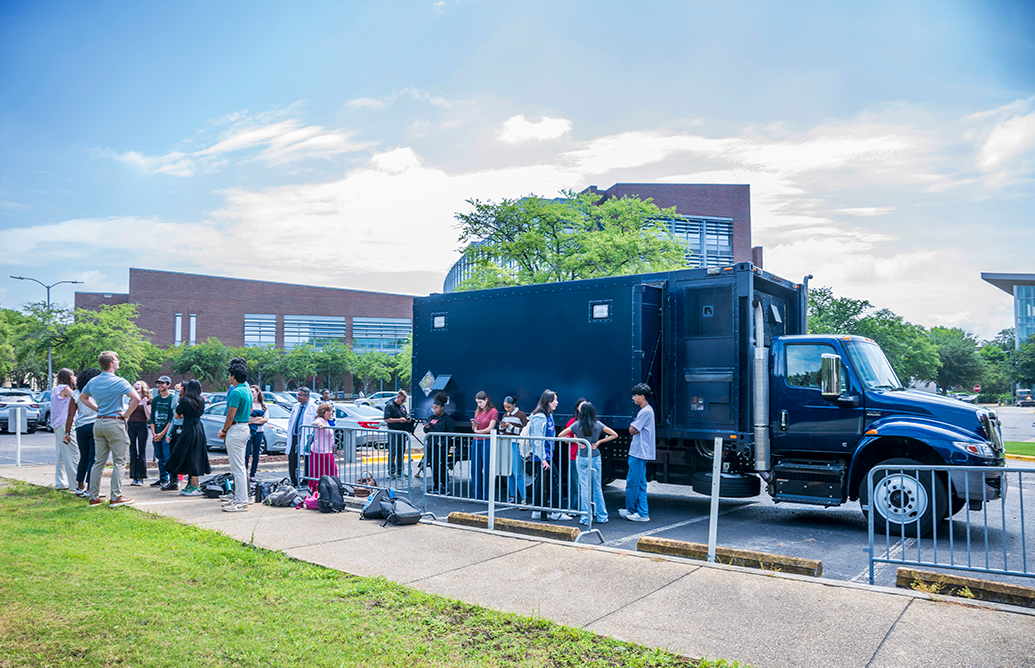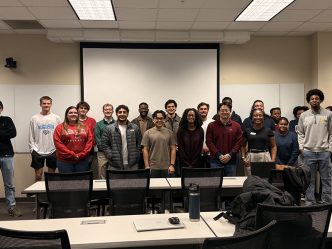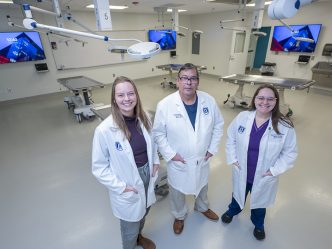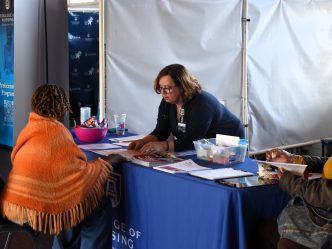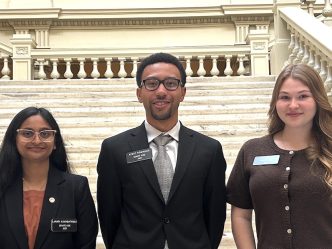To close out the first year of Augusta University’s Applied Molecular Epidemiology Internship with a bang, the 14 students in the pilot program were recently paid a visit by a U.S. Air Force mobile laboratory truck, which is anything but your average truck.
Complete with technology that allows scientists to conduct environmental testing for chemical, biological, radiological and nuclear hazards in the field, the truck offered a unique, hands-on experience for high school and undergraduate AU students who are interested in joining the molecular epidemiology and public health sectors.
“We had a bunch of speakers come talk to the students about their career paths just to demonstrate the versatility and flexibility that public health can have in your path. A lot of the students are pre-med, so this is a way to show them that science and even medicine have applications outside of the clinic,” said Jana Woodall, a pandemic medicine fellow in the Department of Pathology in the Medical College of Georgia at Augusta University, who spearheaded the internship program.
Woodall said the field is changing rapidly, and the COVID-19 pandemic shone a light on how there aren’t enough people trained in molecular epidemiology and public health in the workforce.
During the height of the pandemic, the mobile laboratory truck was stationed outside MCG with scientists from the U.S. National Guard conducting COVID testing.
“Obviously it’s an extreme example, but it’s a way to provide exposure to students so that if they are interested or if they see themselves in a scientific role in the future, this is one application that didn’t exist a few years ago, but now is playing a prominent role in some of our disaster response and in public health,” she said.
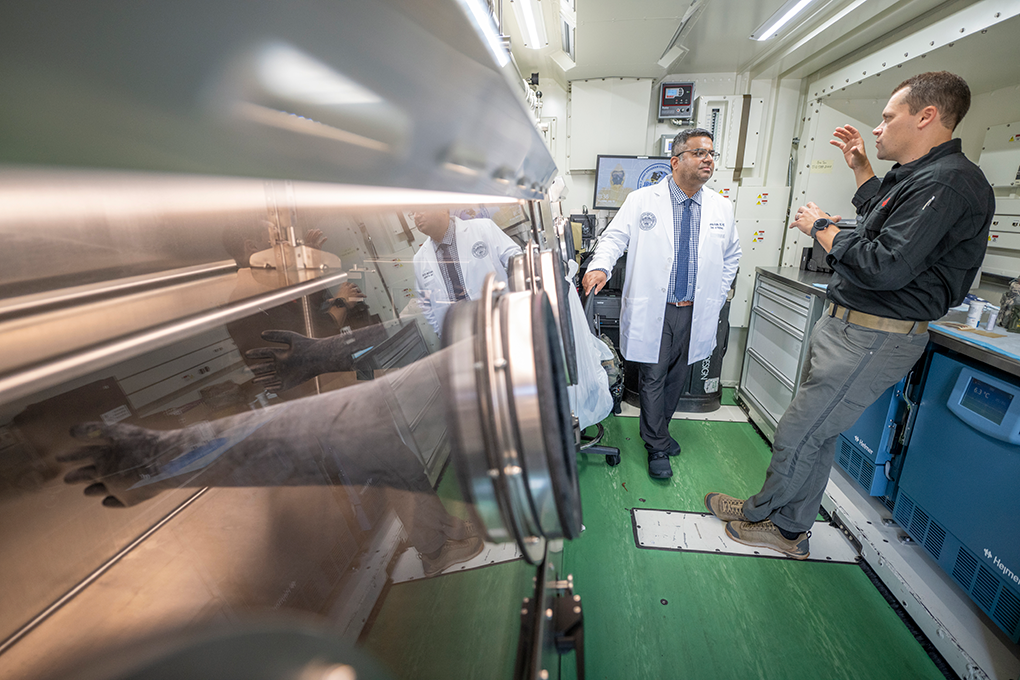
“We were actually really involved in COVID. Our team helped with infection control and sample collection,” said Capt. Kevin Caspary, the science officer for the 4th Weapons of Mass Destruction Civil Support Team in the Georgia Air National Guard. “I was personally involved in the laboratory surge capacity task force, working with Augusta University, Georgia Tech, Georgia Tech’s Research Institute, University of Georgia and Georgia State University to augment laboratory testing for COVID in our early days.”
The truck is also used for missions near large gatherings, like a St. Patrick’s Day parade or the AJC Peachtree Road Race – any place where there’s a lot of people and a high threat for nefarious acts.
Caspary runs operations inside the truck and was in charge of giving the interns a tour and explaining what the equipment is used for.
“It gives them initial exposure to a broader field career path in public health and in clinical medicine, but it also helps us highlight some of the great things that our state has done. The partnerships between the university system and the National Guard have just been tremendous,” he said. “We have 22 dedicated service members who are willing to respond at a moment’s notice to help adjudicate bad things in the state. So anytime we have a chance to get out, build those partnerships, foster those connections across different agencies, we love that opportunity. I’m just so grateful that AU is willing to host us and let us be a part.”
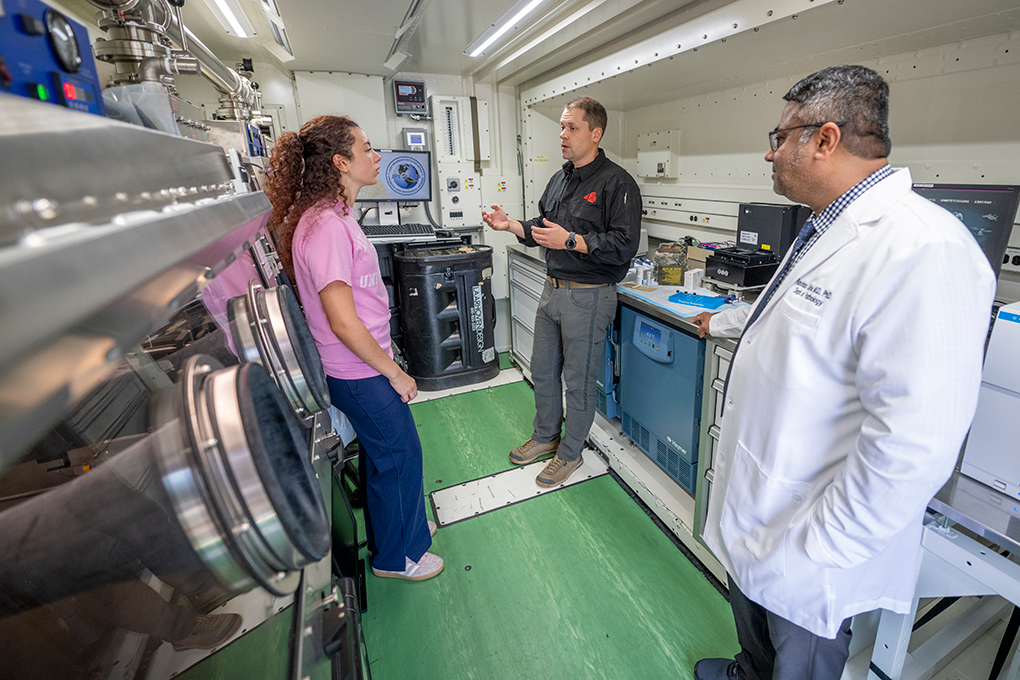
The six-week-long paid internship is funded by the Centers for Disease Control and Prevention through the Pathogen Genomics Centers of Excellence, which is meant to “foster and improve innovation and technical capacity in pathogen genomics, molecular epidemiology, and bioinformatics to better prevent, control and respond to microbial threats of public health importance,” according to its website.
Because it was the first year of the internship, many of the students were being immersed in a molecular epidemiology lab setting for the first time. For fourth-year kinesiology student Philip Schultheis, it was an eye-opening experience.
“It was divided into two halves. The first half was lab work; they taught us how to read a couple of things and how to perform some experiments, like PCR testing. The second part was bioinformatics, which was interesting,” he said. “My favorite part was this last week when people have been introducing their careers. I find that most fascinating because I’ve never heard of half of these careers.”
Schultheis wants to enroll in medical school after he graduates, and he believes what he learned from the internship will help him in his future endeavors.
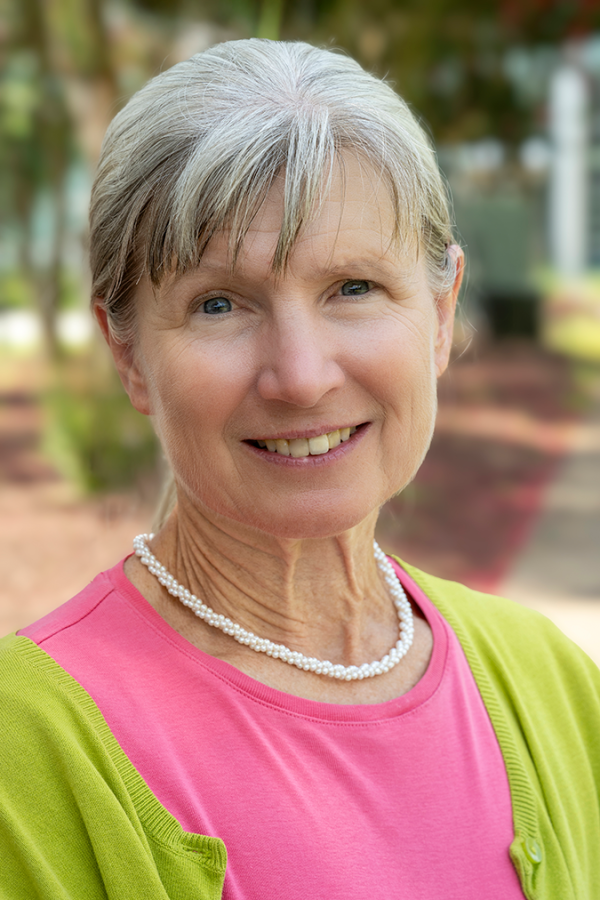
Students in the Summer Research Experience program hosted by the Georgia Cancer Center at Augusta University were invited to tour the truck, as well.
“It’s just a fantastic opportunity and we are grateful that Dr. Kolhe opened it up to us,” said Lisa Middleton, PhD, the director of scientific affairs at the GCC. “I think this is another aspect of biomedical research that needs to be known by these types of students interested in this area of a career.”
Ravindra Kolhe, MD, PhD, holds many academic appointments at MCG, including professor and distinguished chair of the Department of Pathology. He had the idea for the internship after the pandemic, and, with it being incentivized, he wanted it to simulate a summer job of sorts.
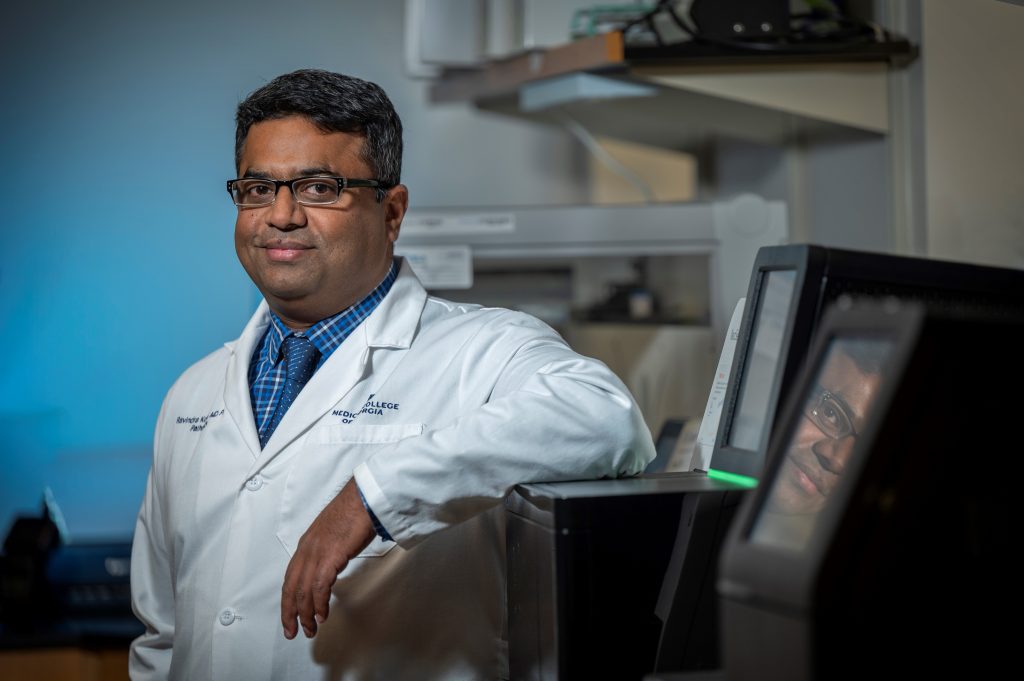
“The idea was to compete with something like that and get them in the program for 20 hours per week for six weeks and get them interested in this,” he said. “The curriculum is very practical. If there is a breakout of a virus infection, how do you take the samples? How do you test it? How do you come to a conclusion of what exactly it is, right from the lab, to the bioinformatics, to the analysis and even how to present it to the community?”
Kolhe and Woodall are looking forward to hosting the internship again next year and have ideas on how to make it even better.
“We’re getting feedback from the interns, and some of them are already interested in coming back next year,” Kolhe said. “We are hoping to work a lot closer with the School of Public Health and other groups on campus and get them involved in the process to make it more practical and applied to public health.”
 Augusta University
Augusta University
